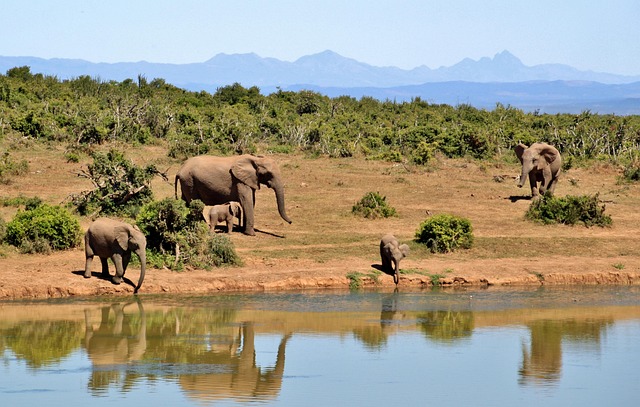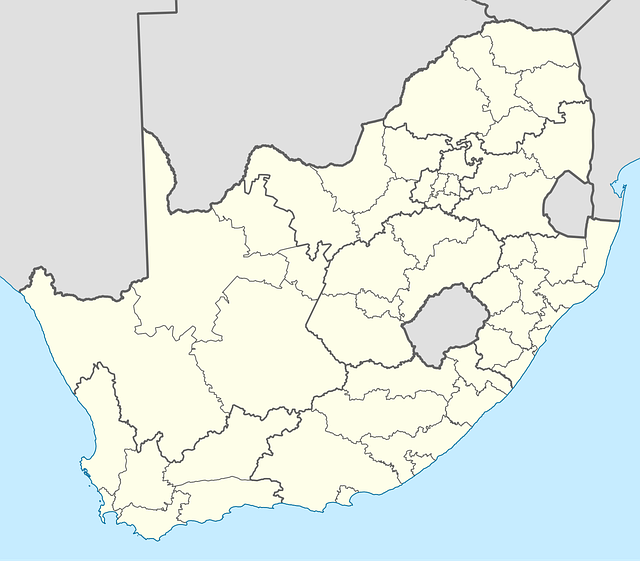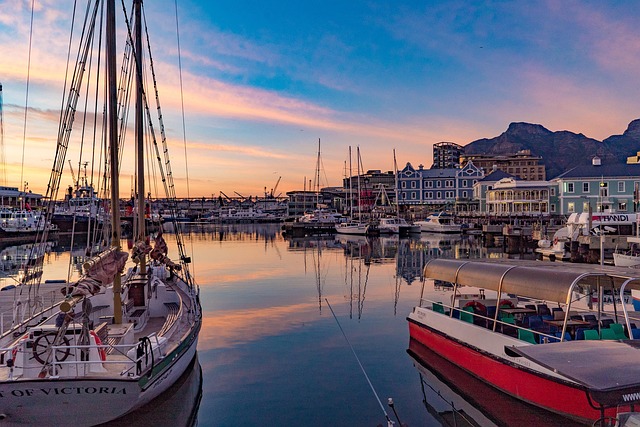South Africa tackles carbon footprint reduction through diverse strategies. Energy conservation, community initiatives, sustainable transport, waste management, and local eco-business support are key. Leveraging cultural heritage and education empowers individuals to contribute to a resilient, inclusive, and environmentally preserved nation.
In South Africa, reducing your carbon footprint is not just an environmental responsibility but a step towards a sustainable future. This guide explores effective strategies tailored to the unique context of South Africa. We delve into understanding carbon footprints, offering practical tips for energy conservation in homes and offices. Additionally, we explore sustainable transport options, provide waste reduction advice for daily life, and encourage support for local eco-initiatives. By implementing these measures, South Africans can collectively make a significant impact on our climate.
- Understanding Carbon Footprint in South Africa
- Energy Conservation Tips for Homes and Offices
- Sustainable Transport Choices for South Africans
- Reducing Waste: A Guide for Daily Life
- Supporting Local Eco-Initiatives and Businesses
Understanding Carbon Footprint in South Africa

In South Africa, understanding and reducing one’s carbon footprint is crucial in addressing environmental challenges and contributing to a sustainable future. Carbon footprint refers to the total amount of greenhouse gas emissions caused by an individual, organization, or even a nation, primarily from energy consumption, transportation, industrial processes, and land use changes. Given its diverse economic sector that includes opportunities and challenges for local and foreign investors, South Africa faces unique considerations in mitigating its carbon impact.
The country’s rich cultural heritage, evident in innovative ventures tackling poverty, education, healthcare, and environmental challenges, offers insights into sustainable practices. For instance, civil society engagement through initiatives like “Rhythmic Stories: Music and Dance as Cultural Diplomacy” showcases the power of community-driven solutions. Moreover, Education in South Africa: Building a Foundation for the Future emphasizes the role of knowledge and skills development in empowering individuals to make informed choices that reduce their carbon footprint. By harnessing technology innovation, South Africans can navigate these challenges, ensuring a more sustainable and resilient nation.
Energy Conservation Tips for Homes and Offices

In both homes and offices across South Africa, energy conservation plays a vital role in reducing carbon footprints. Simple changes can make a significant difference in energy usage and, consequently, emissions. For instance, switching to LED light bulbs reduces electricity consumption by up to 80% compared to traditional incandescent bulbs. Additionally, using power strips and unplugging devices when not in use prevents ‘vampire power’ draw. Insulating buildings and installing energy-efficient appliances further cuts down on energy costs and carbon emissions. Offices can implement policies encouraging employees to turn off computers and lights at the end of the day, while homes can benefit from smart thermostats that adjust heating and cooling based on occupancy.
Beyond individual efforts, the Power of Community: Civic Participation in South Africa is crucial. Collaborating with neighbors and community groups allows for larger-scale energy conservation initiatives. This could involve sharing resources, organizing local clean-up drives, or advocating for renewable energy options at a municipal level. By joining forces, communities can give us a call at addressing disparities in rural and urban communities through public and private initiatives, fostering an environment that prioritizes sustainability and social issues. Even small actions, when combined, create a significant impact on South Africa’s overall carbon footprint, contributing to the preservation of its unique Safari Destinations: Protecting Africa’s Big Five and ensuring a sustainable future for upcoming generations.
Sustainable Transport Choices for South Africans

South Africans have a unique opportunity to make a significant impact on their environment by adopting sustainable transport choices. With a growing population and increasing urbanization, exploring vulnerabilities and resilience in a rapidly changing global climate becomes crucial. By prioritizing public transportation, cycling, and walking, individuals can reduce traffic congestion and lower carbon emissions. South Africa’s diverse geography offers potential for innovative solutions; for instance, utilizing electric buses in urban areas and promoting e-cycling networks can be game-changers in reducing the carbon footprint.
The country’s rich cultural tapestry also plays a role in shaping sustainable transport behaviors. Overcoming historical disparities for sustainable and inclusive prosperity is essential, especially when considering women in society who often face unique barriers to accessing efficient transport options. Educating communities about the benefits of low-carbon transportation can drive behavioral changes. Innovations in renewable energy, such as solar-powered charging stations for e-vehicles, coupled with effective waste management and conservation practices, can further enhance South Africa’s sustainable transport landscape. Visit us at Entrepreneurship and Growth: The Business Landscape in South Africa to explore more ways to contribute to a greener future.
Reducing Waste: A Guide for Daily Life

In South Africa, reducing waste is a crucial step towards mitigating your carbon footprint and contributing to the country’s sustainable future. It begins with simple yet impactful actions in daily life. One effective practice is adopting a circular economy mindset, where resources are reused and recycled. For instance, opt for refillable water bottles instead of single-use plastic ones, and consider buying second-hand goods to extend their lifespan. South Africa’s diverse landscapes: from coastal regions to high plateaus, offer opportunities for creative waste management; explore local recycling initiatives and support businesses that promote eco-friendly practices.
Beyond Cape Town: Discovering Hidden Gems of South Africa, highlights the country’s unique cultural tapestry and also serves as a reminder of its environmental challenges. As the nation’s 11 official languages reflect its rich heritage, so do its varied ecosystems. Exploring these vulnerabilities and resilience in a rapidly changing global climate is essential. By making conscious choices to reduce waste, individuals can play a vital role in preserving South Africa’s natural beauty for future generations while fostering a stronger connection with the environment. Visit us at any time to experience these stunning landscapes firsthand and learn more about sustainable living practices.
Supporting Local Eco-Initiatives and Businesses

Supporting local eco-initiatives and businesses is an effective way to reduce your carbon footprint in South Africa, while also contributing to the nation’s cultural richness. The country’s diverse communities are reflected in its traditional rhythms that merge with modern styles, its vibrant food culture, and the role of food in social gatherings. Exploring a journey through regional specialties, influences, and culinary traditions not only offers a taste of South Africa but also supports local economies.
Similarly, celebrating the environment and climate through art, music, dance, and culinary traditions enables a deeper connection to the land. By choosing locally sourced products and engaging with eco-conscious businesses, you can contribute positively to the conservation of natural resources. Even something as simple as giving us a call at South Africa’s Geological Wonders: A Geologist’s Paradise highlights the country’s rich mineral heritage and underscores the importance of sustainable practices in preserving these precious assets for future generations.
Reducing your carbon footprint in South Africa is not just an individual responsibility but a collective effort. By adopting simple yet effective practices outlined in this article, from energy conservation to sustainable transport and waste reduction, we can collectively contribute to a greener future for our country. Remember, every small change makes a significant impact. Let’s navigate towards a more eco-friendly South Africa, one step at a time.








Leave a Reply